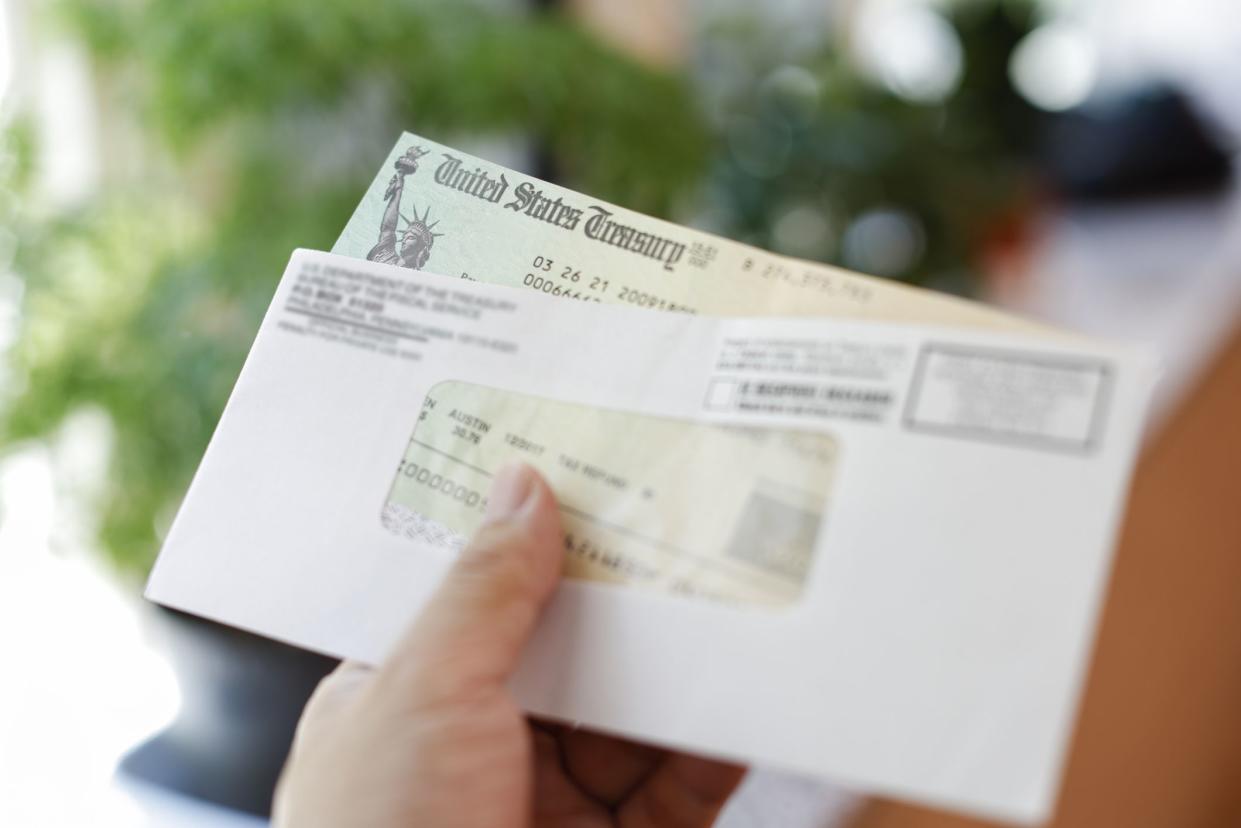One-Third of Americans Don't Think They'll Recover From the Pandemic

Economic Fallout
Many people want nothing more than to say good riddance to the pandemic. However, one year into the pandemic, 34% of Americans felt they would never recover from the financial repercussions. Now, one more year later, it turns out many of them may have been right.
In March 2021, Ramsey Solutions, which is headed by personal finance guru Dave Ramsey, used a third-party research panel to complete a survey from a nationally representative sample of 1,023 U.S. adults to determine the state of their personal finance. A similar survey was completed again in October 2022 which shows a more recent, yet still grim picture of Americans’ personal finance.
Here’s what the study found regarding the state of personal finance in the midst of the pandemic in March 2021, followed by the results of the more recent survey.
Related: How to Salvage Your Finances During Economic Uncertainty

The Number One Cause of Stress Was Money
The individuals surveyed largely stated that their personal finances and money were the number one cause of significant stress in their lives. A whopping 43% of Americans worried daily about finance and 34% even lost sleep over it. Almost half of Americans (47%) and 64% of millennials always worried they would have an unaffordable emergency.
Related: Painless Ways to Grow Your Emergency Fund

One-Fourth Were Worse Off Financially
When compared to the pre-pandemic world, one year into the pandemic 23% of respondents said they were worse off financially. Self-employed individuals were more likely than others (29%) to say their finances had suffered substantially.
For more personal finance stories,please sign up for our free newsletters.

One-Third Didn’t Think They Would Recover
For many, the financial setbacks felt insurmountable with 34% of individuals saying they didn’t think they would ever recover. For individuals with consumer debt, the number skyrocketed to 42%. On the other hand, 27% of individuals who were consumer debt-free felt the same way.

Stimulus Checks Were Used for Necessities
According to Ramsey Solutions, 41% of people who got a stimulus check in 2020 used it for food or bills. An additional 38% reported that they saved the money. Unsurprisingly, people without consumer debt were more likely to save (45%) than those in debt (31%).

Many Millennials Had Serious Debt Issues
Of millennials with credit cards, Ramsey Solutions reported that in March 2021, 40% of them had maxed one out. For half of the millennials with debt, at least one of their debts was in collections. That’s compared to 1 in 5 Americans having a maxed-out credit card and 1 in 4 having debt in collections across all adult age groups.

Those With Debt Reported Feeling Less Satisfied and More Worried
Debt is emotional and during the height of the pandemic, everything else was emotional as well. Of Americans with consumer debt, 44% lost sleep over their finances compared to 24% of debt-free folks. Even if they didn’t lose sleep, 54% of in-debt Americans worried daily about money. Additionally, 16% with debt reported feeling unsatisfied compared to 8% for those without debt.

Most Americans Didn’t Budget
Even when finances were in complete disarray for over a year of pandemic living, 60% of Americans still didn’t have a monthly budget. Of those who did budget, over one-third began only in the year prior, likely in response to the financial stress.

Many Americans Cut Back On Spending During the Pandemic
Several categories saw greater spending cuts than others compared to pre-pandemic spending. For entertainment and travel, 49% of Americans spent less while eating out, which decreased to 52%. This isn’t surprising given the state of the world at the time of the survey.

Saving Money Was the Top Financial Goal for Americans
Americans reported that investing for retirement and increasing savings in the bank were their top two financial goals. Despite this, 42% of Americans weren’t saving for retirement at the time of the survey in 2021 and 56% felt like they were behind on their goals for retirement savings. There weren’t major discrepancies across generations in the percentage of individuals saving for retirement.

Less Than Half of Americans Felt Grateful or Often Happy
In March 2021, a mere 45% of Americans often felt grateful and 43% often felt happy. That means more than half of Americans did not have such positive feelings. Despite this, 79% of people felt hopeful for their financial futures.

Post-Pandemic Personal Finance
So how have Americans’ personal finance sentiments and states changed since March 2021? Unfortunately, Americans who predicted they wouldn’t recover from the pandemic may have been right. The following information is based on survey data from October 2022, the most recent reporting period for the Ramsey Solutions “State of Personal Finance” report. It paints a grim picture of American financial and mental health over 2 years after the start of the pandemic.

Nearly Half of Americans Planned to Spend Less on Christmas
The average American planned to spend $809 for Christmas in 2022. However, 47% of individuals surveyed reported they planned to spend less than the year prior. Only 14% planned to spend more. Families with children planned to spend around $1,300 but still, 44% of those families were planning to spend less than the year prior.

2022: 37% of Americans Struggle with Finances
In March 2021, 22% of Americans reported they were struggling with their finances. That number steadily grew until reaching 37% in the third quarter of 2022. It is likely that the elimination of stimulus money coupled with rising inflation has played a major role in this increase. Only 53% reported being financially stable in October 2022.

Americans Have Very Little or No Savings
Savings actually increased during the height of the pandemic, thanks in large part to stimulus money and people cutting back on spending. However, in October 2022, only 45% of Americans had at least $1,000 in savings, 19% had less than $1,000, and 36% didn’t have any savings.

One in Five Americans Have Fallen Deeper Into Debt
From June 2022 to October 2022, 18% of Americans increased the amount of consumer debt they had. The lack of savings coupled with rising prices has led to many Americans relying on debt to make ends meet.Meanwhile, only 11% of Americans reduced their debt during that same time period.

Money Stress Has Negatively Impacted Mental Health
In 2022, money issues continued in abundance with 50% of Americans stating finances had a negative impact on their mental health. For 41%, their money stress was so severe they cried in the three months prior to the survey and 40% had anxiety attacks brought on by financial problems.

Younger Generations Are More Worried Than Older Generations
For most young Americans, the last few years have been their first experience with recessions and market drops. For Gen Z, 71% of respondents worried about finances daily compared to 64% of millennials, 61% of Gen X, and 42% of baby boomers.

Experience and Wealth Impact Money Stress
Ramsey Solutions experts speculated there were several potential causes of younger generations experiencing so much more financial stress than older generations. First, older generations have already experienced — and survived — financial turmoil. This may have helped them to realize that tough economic times are often temporary. Additionally, baby boomers may be much less stressed because they have spent decades building wealth and generally have higher net worths than their younger counterparts.
